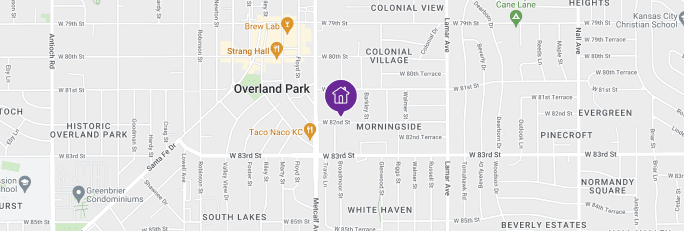
Nursing Care Plans for Dementia and Alzheimer's Disease

When you’re seeking memory care for a loved one living with Alzheimer’s or another form of dementia, it’s important to understand that specialized nursing care plans are vital to providing the best care. Nursing care plans for memory loss help caregiving teams and families make the most informed decisions when it comes to caring for people living with any form of dementia.
Is memory care the right fit?
Let our free assessment guide you to the best senior living options, tailored to your needs.
Key Takeaways
- Nursing care plans help caregivers coordinate multiple care needs. Nursing care plans for memory loss are more detailed and account for the specific care needs of people with dementia.
- Nursing care plans for memory loss are vital for senior health. Seniors with memory loss may be unable to remember their own needs, so care plans help their caregivers know how to help.
- Nurses create care plans using a systematic approach. Nurses and caregivers look at the senior’s symptoms, diagnoses, and lifestyle to create a personalized care plan.
- Care plans for memory loss should be regularly updated. Regular adjustments help account for changes in a senior’s needs and prevent health emergencies.
What is a nursing care plan?
Nursing care plans for seniors coordinate consistent care for a variety of patients with a variety of needs. They enable caregivers to provide care that’s tailored to a patient’s history, diagnosis, and treatment goals.[01]
Nursing care plans help caregiving teams streamline the care process, according to the University of St. Augustine Health Sciences.[02] They’re used across all types of patient care settings, and most nurses are trained in crafting them. Nursing care plans for memory loss are more detailed to account for the specialized needs of a memory care patient.
Why are nursing care plans for memory loss necessary?
Because memory care patients may not remember what they need to feel better, a specialized nursing care plan for memory loss is necessary. Memory care-specific nursing care plans are essential for patients who rely on a variety of treatments and person-centered therapies to maintain a high quality of life.
Memory care nursing plans are much more personal and require more hours of skilled observation — all with the goal of outlining needs and identifying suitable intervention techniques. Professional and consistent dementia care mapping (DCM) methods should be followed during observation periods to help make the most person-centered, individualized care plan possible.[03]

Is memory care the right fit?
Let our free assessment guide you to the best senior living options, tailored to your needs.
How is a nursing care plan made?
Nurses and caregivers follow these general steps when creating a nursing care plan for memory loss:
- Assessment. With clinical tests and observation, the patient’s nurses, caregivers, and health care team all coordinate their assessments of the patient’s physical, mental, and emotional states.
- Diagnosis. After a thorough assessment, the care team creates a diagnosis. The North American Nursing Diagnosis Association (NANDA) defines a nursing diagnosis as “a clinical judgment.”[04]
- Comorbidities. Nurses and caregivers should familiarize themselves with any of the patient’s existing health concerns, such as diabetes or a history of depression, especially when taking medications with contraindications. This additional information helps caregivers deliver the best care possible.
- Signs and symptoms. This step is critical to understand how a patient is currently suffering, what their specific symptoms and behaviors are, and what’s treatable. This step is also important to track the side effects of certain medications and whether a treatment or medicine is working for the patient. Care staff at memory care facilities should be trained to look for non-verbal cues that could signal pain or discomfort.
- Prioritizing. The patient’s care team should account for all of the patient’s needs and prioritize appropriately. Maslow’s Hierarchy of Needs is a common nursing tool used to understand which needs take priority.[05] For example, a person’s physical needs — like healthy food and clean water — must be met before social and emotional needs can be attended to.
- Clinical goals. Clinical goals are the short- or long-term outcomes the care team and patient are working towards. These goals should be realistic while still helping the patient improve current symptoms or comorbidities. Goals should also be measurable to help track progress.
- Self-management. Self-management explores what a patient can do to ease their symptoms, manage pain, and live a fulfilling life. This step is more realistic for early-stage dementia. A self-aware memory care patient can practice things like puzzles, reading, and healthy lifestyle changes to help alleviate the progression of their symptoms.[06]
- Intervention techniques. These are the actual care services that nurses or caregivers provide. Intervention techniques can take the form of medication, behavioral therapies, activities, mobility assistance, environment modification, and more. Family input is very important when planning intervention techniques. Families can tell caregivers about their loved one’s past routines, hobbies, and careers, all of which are used to make a comforting and helpful environment.
What is an intervention and what should it address?
A key component of the nursing care plan for memory loss is the intervention stage. This stage enables the caregiver and the patient to work toward goals. Intervention techniques should always be person-centered and vary greatly from patient to patient to help address a range of individual symptoms and needs. Interventions should always promote the patient’s entire well-being.
Specific examples of different intervention techniques can include the following:
- Medication assistance and administration
- Special diets or mealtimes to accommodate health and personal preference
- Memory care-specific therapies and activities and other person-centered programming
- Personalized de-escalation and behavior-modification techniques
- Environment control to promote calm and happy surroundings tailored to individuals
- Wandering prevention through community design, caregiver monitoring, or personal devices
- Specialized dementia-friendly bathing assistance, like the popular Bathing Without a Battle techniques[07]
- Specialized assistance with all activities of daily living (ADLs) that accounts for personal preferences

Memory care questions? Get expert help
Tell us your care needs to receive personalized guidance from our advisors.
Nursing care plans for memory loss may need regular adjustments
A nursing care plan for memory loss could take several revisions until you find what works best for your loved one. If their current nursing care plan isn’t working, it’s a good idea to sit down with their care team and discuss new goals or intervention techniques, like different medicines, treatments, diets, or behavioral interventions. If you don’t feel heard by your loved one’s care team, seek out a second opinion if necessary.
Professionally managed and updated nursing care plans for memory loss are key to effective, best-in-class memory care.
What to look for when seeking memory care
To help find a best-in-class memory care community for a loved one, read up on the following topics:
- The role of the memory care director. Memory care directors ensure smooth operation of a community. Take note of how they oversee the staff, residents, and the quality of the programs they promote.
- How the memory care staff is trained. To gauge their understanding of dementia, get a feel for the level of memory care training and education the staff has.
- How patient care is approached and managed. To know your loved one is in the right hands, learn what professional techniques — like person-centered care — caregivers put into action.
- The role of memory care caregivers. Dementia care best practices should be used by memory care caregivers, with more specialized methods than assisted living caregivers.
A Place for Mom is committed to helping families find the best senior living options. With resources like touring checklists, free Senior Living Advisors, and informative articles, A Place for Mom helps families become informed.
If you need help finding a best-in-class memory care community in your area, reach out to a Senior Living Advisor at A Place for Mom. This free service can help you find local memory care communities with the best care practices.

Senior apartments near you
There are senior apartments in your area
Doenges, M. E., Moorhouse, M. F., & Murr, A. C. (2018). Nursing Care Plans: Guidelines for Individualizing Client Care Across the Life Span.
The University of St. Augustine for Health Sciences.How to Write a Care Plan: A Guide for Nurses.
Surr, C. A., Griffiths, A. W., & Kelley, R. (2018, January 26). Implementing Dementia Care Mapping as a practice development tool in dementia care services: a systematic review. Clinical Interventions in Aging.
NANDA International.Glossary of terms.
McLeod, S. A. (2020, Dec 29).Maslow’s hierarchy of needs. Simply Psychology.
Quinn, C., Anderson, D., Toms, G., Whitaker, R., Edwards, R. T., Jones, C., Clare, L., (2014, March 8). Self-management in early-stage dementia: A pilot randomized controlled trial of the efficacy and cost-effectiveness of a self-management group intervention (the SMART study). National Library of Medicine National Center for Biotechnology Information.
The Cecil G. Sheps Center for Health Services Research.Bathing Without a Battle.
Memory care in all states
The information contained on this page is for informational purposes only and is not intended to constitute medical, legal or financial advice or create a professional relationship between A Place for Mom and the reader. Always seek the advice of your health care provider, attorney or financial advisor with respect to any particular matter, and do not act or refrain from acting on the basis of anything you have read on this site. Links to third-party websites are only for the convenience of the reader; A Place for Mom does not endorse the contents of the third-party sites.
Memory Care options tailored to your needs
Memory Care options tailored to your needs